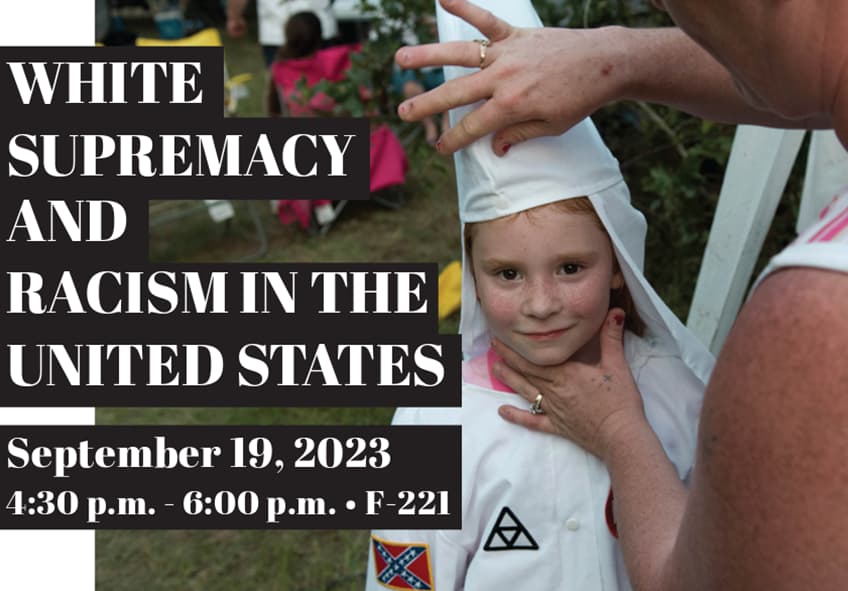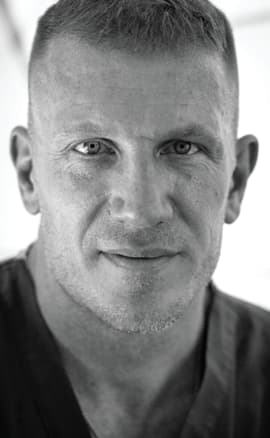White Supremacy and Racism in the United States

Arkansas. A mother helps her daughter put on her helmet during a Ku Klux Klan Labor Day weekend. During this gathering, members and supporting Klan realms from five different states came together for a three-day weekend of racial unity. Not long after this image was taken, this family resigned from the Klan. Photo and caption by Anthony Karen, all rights reserved.
Event Canceled
Questions: 609-652-4699
Light Refreshments
The exhibit will be on display throughout the fall semester. It is free and open to the public, but individual and group visits require registration. To coordinate a visit, please contact 609-652-4699.
The exhibit, which is generously funded by Holocaust survivor Leo S. Ullman, introduces visitors to several white supremacist groups in the United States and examines the lives and experiences of ordinary individuals who join (and sometimes leave) these groups. The exhibit seeks to understand what is it about their lives that seems to coincide with racist politics, and how they pass on their ideology to subsequent generations. The exhibit is part of a project by historian Dr. Elke Weesjes, titled Children of the (White Collar) Klan: Growing up in the American Far Right, 1960-1990, which was funded by Mellon/ACLS. The exhibit presents photos and captions by Anthony Karen, who has more than twenty years of experience photographing far-right extremist groups in the United States.
Engaged discussion with Dr. Elke Weesjes and Anthony Karen

Dr. Elke Weesjes is the director of Kingsborough Holocaust Center and an adjunct associate professor of history at Kingsborough Community College (CUNY) in Brooklyn. Dr. Weesjes has published widely, including Growing Up Communist in the Netherlands and Britain: Childhood, Political Activism, and Identity Formation (2021).

Anthony Karen is a photojournalist based in New York. His photographs and interviews have been featured in LIFE, TIME, NPR Radio, Vice TV, and in several documentaries, in addition to the motion picture Imperium, which is loosely based on a true story.


